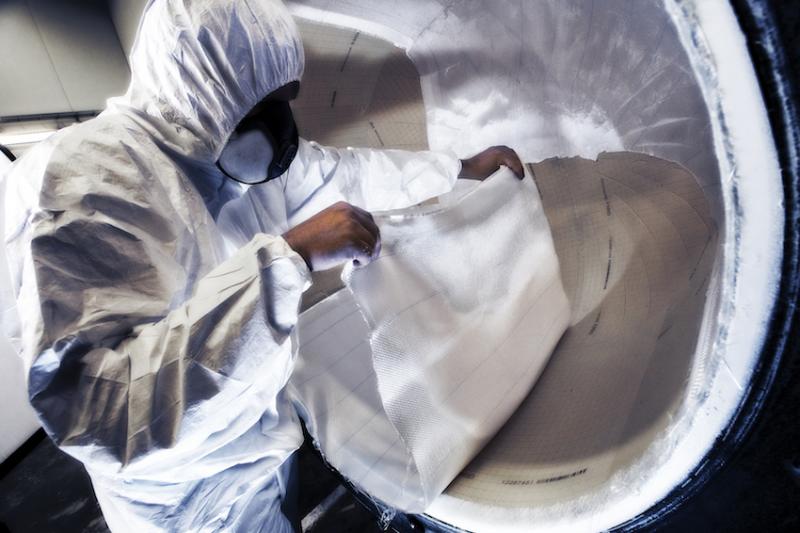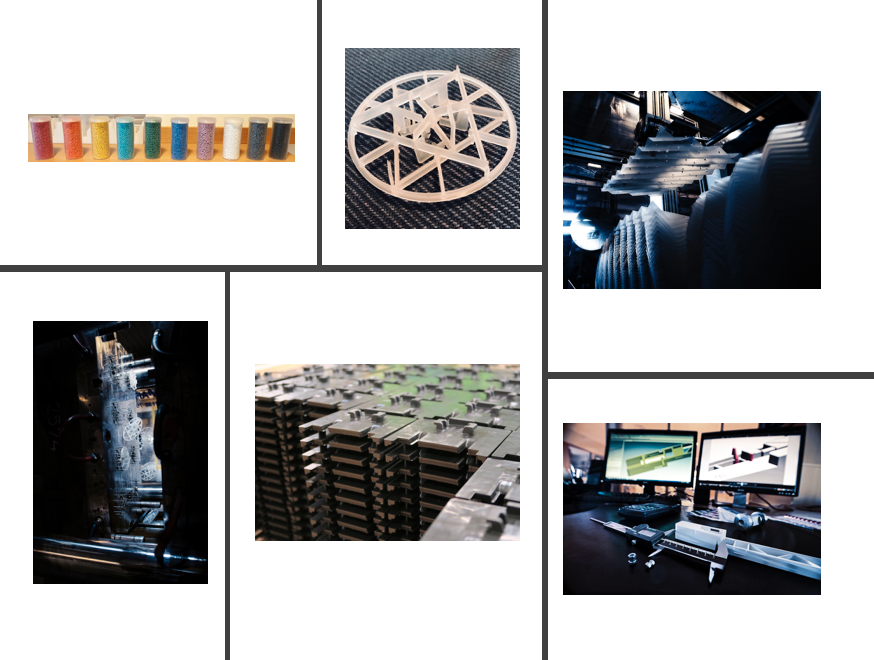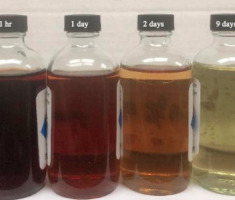Partner profile: Moulding the future of carbon capture

Our planet is facing an environmental crisis created by plastic overuse, yet this obscures the benefits of a versatile material, which has been used in everything from food production and medical care to electronics and construction. Now, work under way by the LAUNCH CCUS project could see plastic becoming an important ally in climate action.
The process known as carbon capture and storage (CCS) begins with trapping carbon dioxide (CO2) from the flue, or waste, gases of industrial sites. Used at large enough scale, CCS could play a significant role in enabling countries to meet their carbon reduction pledges while protecting their economies.
One approach to capturing CO2 is to use a chemical compound known as a solvent, which is packed into the long, narrow tower of a capture plant. These solvents are recycled for re-use but a percentage is lost due to degradation, incurring a replacement cost for any capture plant operator.
The LAUNCH project is seeking ways to control this degradation and includes rigorous testing of possible countermeasures under different capture plant conditions. That’s where the Norwegian company, Biobe AS, comes in.
Scientists engaged in Work Package 2 are using four test rigs to come up with strategies for controlling degradation, including the removal of products thought to cause it. Oxygen and nitrogen dioxide are two culprits. A third is iron.
Biobe is a developer and manufacturer of different products in thermoplastic and composite materials, with customers both at home and abroad. The company is known for its innovative product solutions – from simple products to larger, more complex projects – and it is well equipped to accept the challenge thrown down by the LAUNCH project. In a bid to remove iron from the scene, Biobe is designing and building a capture demonstration plant made entirely of plastic.
Jon Hermansen, senior engineer at Biobe, explains: “Research has shown that using plastic materials in a CO2 cleaning unit will prolong the lifespan of an amino acid-based solvent. This means that the whole plant, including pipes, scrubbers, absorbers, desorbers and process equipment, such as pumps and valves, must be made in polymer materials.
“Even the heat exchangers – basically, insulators – will be formed from plastic materials. The process of making such a plant creates many challenges. So, we will be depending on the wide cooperation of research institutes and material suppliers for our work as part of the LAUNCH project.”
The design of the non-metallic plant, which will be a world-first, aims to increase the efficiency of CO2 removal and reduce overall costs for large-scale facilities as well as small to medium-scale operations.
On this international project, Biobe will be working with Los Alamos National Laboratory and the University of Texas in Austin the USA, together with TNO in the Netherlands. Biobe hopes that its own long experience combined with the other partners’ expertise will deliver the results the project is aiming for.
Hermansen says: “We’re an experienced supplier of process cleaning applications. We’ve served the sulphur dioxide cleaning industry for more than 25 years and that has given us unique experience and a competitive edge. The work we undertake for LAUNCH will support climate action worldwide and will also be a valuable addition to our business portfolio.”
Biobe supplies the packing used within capture plants but also provides a complete range of internal components – for absorption and various stripping operations for power plants, refineries and chemical plants – made from thermoplastics and thermoset materials to suit towers of varying designs. According to Hermansen, these products also have a high degree of corrosion resistance and that is expected to pay dividends for the LAUNCH project.
Work on the test plant’s design and engineering is already under way and the first version is expected to be completed later this year.
About Biobe AS
Biobe AS is one of the most comprehensive suppliers of plastic product solutions, using multiple varieties of plastic material. It is a part of the Bewi Group, which is a Norwegian owned European concern with production units and sales offices in several countries. Biobe is located in Fredrikstad, Norway, about 100 kilometres south of Oslo, in close proximity to Sweden and the rest of Europe.
The test rigs that will be used within Work Package 2 are:
- RWE’s pilot plant, Niederaussem, Germany
- AVR’s waste incineration in Duiven, the Netherlands
- National Carbon Capture Center, Alabama, USA
- PACT test facility, University of Sheffield, UK

Words: Indira Mann, SCCS
Main image: Composite moulding at Biobe AS. Composites or GRP have much better mechanical and temperature performances than most thermoplastics and can be used in very demanding products. Credit: Biobe AS
Montage: (clockwise from left, all Biobe unless otherwise stated) Raw materials at Biobe AS (credit: Jasper Ros, TNO); Random packing for use in SO2 scrubbers; production line; design under way; serial production of thermoplastic covers in recycled materials; random packing under production














